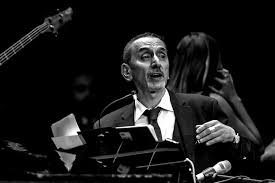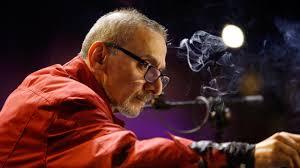BEIRUT – Ziad Rahbani, a towering figure in Lebanon’s cultural and artistic scene, has died at the age of 69, according to reports from Lebanese media on Saturday. A multifaceted artist—composer, pianist, playwright, and political satirist—Rahbani leaves behind an enduring legacy that shaped Lebanon’s cultural identity through years of turmoil and transformation.
A Musical Heritage and Unique Voice
Born in 1956 to legendary parents—Fairuz, the iconic singer, and Assi Rahbani, one-half of the renowned Rahbani Brothers—Ziad seemed destined for the arts. However, he carved out his own path, blending Arabic melodies with Western influences like jazz and funk to create a sound that spoke to the heart of the Lebanese experience.
Rahbani’s career took off in the early 1970s with his groundbreaking satirical play Sahriyyeh. It marked the start of a fearless journey as a social commentator, with his music and theater pieces exploring themes such as civil war, inequality, and social disillusionment.

The Voice of a Troubled Era
During the Lebanese Civil War (1975–1990), Rahbani’s plays became cultural mirrors, capturing the pain and divisions of a fractured nation. Productions such as Bennesbeh Labokra… Chou? (What About Tomorrow?) and Film Ameriki Taweel (A Long American Movie) combined sharp humor with courageous political critique—an audacious approach during a time of chaos.
“Ziad spoke to the very soul of Lebanon,” noted Beirut-based cultural critic Samir Karam. “His art voiced the unspoken truths and frustrations of the people.”
In the 1980s, Rahbani collaborated extensively with his mother, Fairuz, composing several of her most celebrated songs during her return to the stage. These works, infused with his jazz-inspired arrangements, redefined the soundscape of modern Arabic music.

A Bold and Polarizing Figure
Known for his unapologetic political views, Rahbani often courted controversy. A supporter of leftist ideologies and a fierce critic of sectarian politics, he was unafraid to challenge cultural and political establishments.
“He stood up to authority—whether political, cultural, or religious—with rare courage,” said journalist Rania Zeidan. “Artists like him are rare in this region.”
Despite divided opinions on his politics, Rahbani’s genius and authenticity earned him admiration across all segments of Lebanese society.
Tributes and Lasting Influence
News of his death has sparked an outpouring of grief across Lebanon and the Arab world. Fans and fellow artists have flooded social media with heartfelt tributes, sharing clips from his plays, lyrics from his songs, and personal memories. Lebanese singer Majida El Roumi expressed her sorrow on Twitter: “Lebanon has lost a genius. Ziad’s music and words will live forever in our souls.”
Though the cause of death has not yet been disclosed, Rahbani’s place in Arab cultural history is secure. His fearless voice continues to inspire new generations of artists, musicians, and playwrights committed to truth and creativity.
He is survived by his family, including his mother, Fairuz, whose legacy he helped enrich through his bold artistic vision.
As Lebanon navigates its ongoing struggles, the absence of Ziad Rahbani will be deeply felt. Yet, his voice—etched into timeless melodies, satirical monologues, and unforgettable performances—will continue to resonate in theaters, cafes, and hearts throughout the region.






